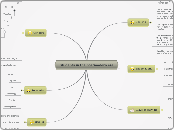von ayda lopez Vor 12 Jahren
526
POSTMODERNISM
In the postmodern educational landscape, creativity is emphasized as a crucial element in the construction of knowledge and the encouragement of diverse viewpoints. Students are encouraged to value and develop their intuition, as rational thought is no longer seen as the sole means of dealing with ideas.









